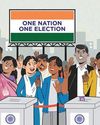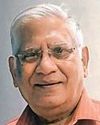Wahhabi extremism is not Islam, say Sinhala-Buddhist nationalists in Sri Lanka. The Sufi Muslims there agree

Following the Easter Sunday bombings in Sri Lanka on April 21, which killed more than 250 people, some Buddhist monks have demanded that the country be made a theocracy.
On July 7, the controversial Gnanasara Thero, secretary-general of the nationalistic Bodu Bala Sena (BBS), told a massive Buddhist conference in Kandy that if 7,000 of 10,000 Buddhist temples on the island contested elections, the face of Sri Lankan politics could be changed. Gnanasara was till recently in jail in a contempt of court case; President Maithripala Sirisena cut short the six-year term, on May 23, through a special pardon.
Gnanasara said the Buddhist clergy was capable of mobilising the Sinhala population into a single vote bloc, to elect a party that would get a clear majority in parliament. The call was to shape a pristine Buddhist identity and vanquish Islamic terrorism.
Though the traditional Sufi Muslims of Sri Lanka have a history of living in peace, the growth of puritanical Wahhabism and Salafism has distanced Muslims as a whole from the rest of the populace.
Interestingly, the Easter bombings were aimed at the minority Christians and not the majority Sinhala Buddhist community. The Christians have largely been silent bystanders in the strife between Buddhists and Muslims. But a few weeks after the bombings, Cardinal Malcolm Ranjith, head of the Catholic church, declared that Sri Lanka was a Sinhala Buddhist country. For BBS and similar groups, this statement was a great morale booster.
The BBS hit the headlines after the anti-Muslim riots in Aluthgama in 2014, in which four people were killed. Riots rocked Ampara and Kandy last year and several areas around Negombo in May this year.
Denne historien er fra September 08, 2019-utgaven av THE WEEK.
Start din 7-dagers gratis prøveperiode på Magzter GOLD for å få tilgang til tusenvis av utvalgte premiumhistorier og 9000+ magasiner og aviser.
Allerede abonnent ? Logg på
Denne historien er fra September 08, 2019-utgaven av THE WEEK.
Start din 7-dagers gratis prøveperiode på Magzter GOLD for å få tilgang til tusenvis av utvalgte premiumhistorier og 9000+ magasiner og aviser.
Allerede abonnent? Logg på

Pressure Points
Author and MP Shashi Tharoor and motivational speaker Gaur Gopal Das on how to find healing and meaning in today's world

War Over Wounded Earth
For the BJP andthe Congress, the ravaged farmlands of Vidarbha represent a cxitieal battleground in their larger struggle to win Maharashtra

Say no to continual elections
Following the recommendations of a high-level committee led by former president Ram Nath Kovind to streamline the widely scattered schedule of national, state and local elections, the Union cabinet has reportedly approved two constitutional amendment bills for likely introduction in Parliament. Predictably, the return of the ‘one nation, one election’ issue to news has set off a flurry of objections by several opposition leaders.

Fabulously, fashionably funny
The third season of the Karan Johar-produced Fabulous Lives of Bollywood Wives dropped on Netflix, but articles criticising the show appear in some news site or the other almost daily. If it is so bad, why keep writing about it? And if it is so bad, why would the superpowers at Netflix, who are harder to meet than the prime minister, commission the show season after season?

All in the family
The Chitaras have been passing down the secret art of Mata Ni Pachedi through generations for more than 400 years now

Raise a toast to Vidya Balan
Vidya Balan is a New Year baby. At 45, she is aglow in the most beautiful way, having won the hearts and admiration of countless fans across the world, who watched the supremely talented actor take a public tumble on stage at a high-profile promotional event recently, sharing the platform with no less a dancer than the eternally graceful Madhuri Dixit.

Death no bar
Being alive is not a legal requirement to be elected president of the United States

The Lotus POTUS
You should visit us one of these days— there is so much excitement in our USA! No, I don’t mean the famous USA—the Ulhasnagar Sindhi Association of Mumbai.

RAY OF HOPE
Actor and cancer survivor Lisa Ray talks to oncologist Dr Jame Abraham about inner strength and her surrogacy journey

LEVERAGE AI TO ENHANCE WORK
AT THE WEEK Health Summit, Siddharth Bagga, head (retail, CPG and health care), Google Cloud, elaborated on the significant work that Google has been doing in health care through artificial intelligence (AI).